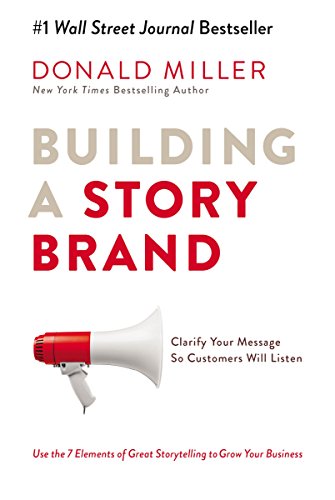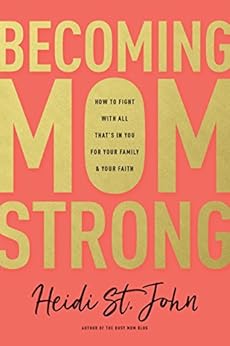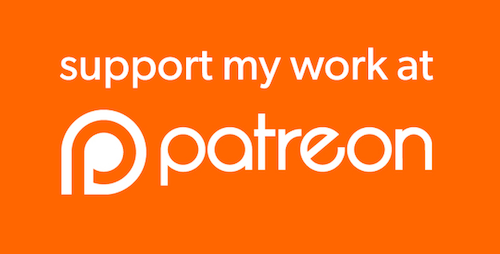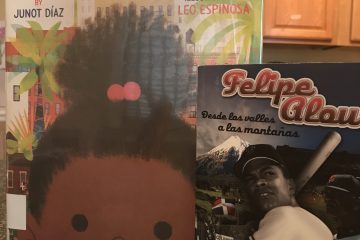It’s that time again! My mind scattered in a lot of directions this year and I didn’t read as much as I should have, but here’s a run-down of what I did get to read. I’ll end with some items on my to-read list and ask you for some recommendations.
Must read
I’m ending the year with just one book I’m labeling a must-read, and it’s the 2013 Pulitzer novel.
The Orphan Master’s Son, Adam Johnson
From Goodreads: An epic novel and a thrilling literary discovery, The Orphan Master’s Son follows a young man’s journey through the icy waters, dark tunnels, and eerie spy chambers of the world’s most mysterious dictatorship, North Korea.
Part breathless thriller, part story of innocence lost, part story of romantic love, The Orphan Master’s Son is also a riveting portrait of a world heretofore hidden from view: a North Korea rife with hunger, corruption, and casual cruelty but also camaraderie, stolen moments of beauty, and love. A towering literary achievement, The Orphan Master’s Son ushers Adam Johnson into the small group of today’s greatest writers.
My take on it: I’ll preface this by saying many people can’t “get into the book” and end up giving up or getting angry that they “wasted” so much time getting through it. So, if you have that opinion, you are not alone. I recommend you read through the reviews on Goodreads a bit. But for me, the story was stunning, the characters drew me in, the novel enveloped me almost straight through from beginning to end. The way the camera, the tattoo, the identity issues, everything wove its way through the story (oh, the peaches!), the changing voices, the loudspeaker chapters – I felt like this was a literary masterpiece. I recommended it all year.
That said, it’s hard to read. There is cruelty and deception and propaganda you cannot imagine. Every other page rips your heart out. So be prepared. Adam Johnson isn’t Korean, but he did a lot of research and made a trip to North Korea for the book, and even the epilogue of information he gathered for the book is an eye-opener. I finished this book at the time when every news story was Trump’s meeting with the Great Leader, all about the sanctions and the economy, and it was incredibly frustrating to me that in the case of North Korea as well as Saudi Arabia we kowtow in the name of national sovereignty and the almighty dollar. If you’re like me, you’ll be wondering why the world refuses to address the human rights nightmare that is North Korea.
Worth your time
Girl at War, Sara Nović
From Goodreads: Zagreb, summer of 1991. Ten-year-old Ana Jurić is a carefree tomboy who runs the streets of Croatia’s capital with her best friend, Luka, takes care of her baby sister, Rahela, and idolizes her father. But as civil war breaks out across Yugoslavia, soccer games and school lessons are supplanted by sniper fire and air raid drills. When tragedy suddenly strikes, Ana is lost to a world of guerilla warfare and child soldiers; a daring escape plan to America becomes her only chance for survival.
Ten years later Ana is a college student in New York. She’s been hiding her past from her boyfriend, her friends, and most especially herself. Haunted by the events that forever changed her family, she returns alone to Croatia, where she must rediscover the place that was once her home and search for the ghosts of those she’s lost.
My take on it: It’s the theme of the year: mass cruelty isn’t perpetuated by a few monsters, it’s perpetuated by ordinary people who give free rein to the monsters within us all. As soon as you read the opening pages of Girl at War and read how Ana is asked
Do you want Serbian cigarettes or Croatian ones?
you know there’s one of those events afoot.
Of course, the sociolinguistic aspects were super interesting to me:
In school we’d been taught to ignore distinguishing ethnic factors, though it was easy enough to discern someone’s ancestry by their last name. Instead we were trained to regurgitate pan-Slavic slogans: ‘Bratstvo / Jedinstvo!’ Brotherhood and Unity. But now it seemed the differences between us might be important after all.
and
The difference between Croatian and Slovenian was exasperatingly mild, the storefronts and street signs filled with words that looked familiar but not quite right, rendering comprehension just out of reach.
When meeting an English-speaking doctor,
I’d studied English since the first grade but considered it a murky language, one whose grammar seemed to have been made up on the fly. Still, I resolved to concentrate and pick up as much as I could.
On German war reports,
We stared at the screen, as if looking at it hard enough would somehow advance our German skills.
And when she returns to Croatia, she ends up speaking
Cringlish, a system we’d devised without discussion- Croatian sentence structure injected with English stand-ins for the vocabulary I was lacking, then conjugated with Croatian verb endings.
This book, too, was a window into a world so beyond us. So far beyond that Ana thinks after the 9/11 attacks,
War in America was so incongruous with what had happened in Croatia- what must have been happening in Afghanistan- that it almost seemed a misuse of the word.
And the rescuers that should have come, those elusive heroes that always seemed otherwise occupied?
On the news men in suits were always calling on the States to help protect us, but no one had shown up yet. Maybe they were just too far away.
That does seem to be our problem, doesn’t it.
Over the years I’d lost faith in the UN- their interventions, in my country and across the globe, were tepid at best.
And so even though after being sent to the States to be adopted, Ana’s effort to
create a palatable war was tiring and painful, so one day, I stopped completely. I grew and my accent faded. For years I didn’t reveal anything at all. I passed as an American. It was easier that way – for them – I told myself.
she has the opportunity to talk to them, to the UN about their intervention. To see photographs of children smiling in photos
as if they remembered from another time that one was supposed to smile in photographs.
To remember the photographers as
outsiders who claimed the moral high ground, then stood back and snapped photos during encounters with bloodied children.
And to tell the U.N. heroes,
Know that your food aid does not reach the people it’s supposed to. In the place where I stayed, there were no Peacekeepers, and the Cetniks stole the aid meant for civilians. If you drop the food and leave, you’re just feeding your enemy. We had guns, but they had more. Firepower is the only thing that determines who eats.
I like endings, and this book didn’t have enough of one for me, but my best takeaway is the perspective on why people go back. Ana and her parents were out of Croatia for her sister’s doctor appointment, and then they went back. Yes, it was dangerous, and no, it didn’t turn out well, but Ana’s wise father taught her important lessons in the process. He told the border guards,
Of course we want to go back. Of course we’re going home.
and told her,
Do you understand, Ana, that sometimes hard things are worth the trouble?
The book capturesd for me the heart of the refugee crisis across the world. It helped me understand the huge smile on the faces of our Congolese students at the ESL program I direct when I manage to get something right in Kinyarwanda. Of course we want to go home.
Which leads me to…
A Hope More Powerful than the Sea, Melissa Fleming
From Goodreads: Doaa and her family leave war-torn Syria for Egypt where the climate is becoming politically unstable and increasingly dangerous. She meets and falls in love with Bassem, a former Free Syrian Army fighter and together they decide to leave behind the hardship and harassment they face in Egypt to flee for Europe, joining the ranks of the thousands of refugees who make the dangerous journey across the Mediterranean on overcrowded and run-down ships to seek asylum overseas and begin a new life.
After four days at sea, their boat is sunk by another boat filled with angry men shouting threats and insults. With no land in sight and surrounded by bloated, floating corpses, Doaa is adrift with a child’s inflatable water ring around her waist, while two little girls cling to her neck. Doaa must stay alive for them. She must not lose strength. She must not lose hope.
My take on it: The noise of competing news and sound bites drowned each other out to the point I really had no idea what was going on in Syria, for how long, and why. A Hope More Powerful than the Sea put faces and names to the refugees risking it all to cross a deadly sea in hopes of a tenuous freedom.
Just one ding: Fleming is an outreach worker, someone who makes a difference, but she’s not a writer. The writing has a bit of a feel of adolescent journalism- not bad, but clipped, matter-of-fact, without much feeling or depth.
Not a big deal, though, because Doaa’s story has enough feeling all on its own, stormy and deep as the Mediterranean itself.
As politics turned tumultuous and the powerful began to oppress as they often do,
Doaa’s conversations with her friends were no longer about boys, marriage, or neighborhood gossip. Now they talked only about resistance and rebellion.
She was spunky and cared about what was going on around her. And when her father decided the oppression and violence were too much, she envied
the mountains and the trees and the rocks because they will be able to breathe Daraa’s air and I won’t.
I often think refugees must just be grateful to have ended up in whatever savior country has accepted them and forget the deep, human, natural love they must have for their home left behind. As I work with refugees weekly in my own city, this perspective helps me feel empathy for them so much more.
As an evangelical Christian, I found myself asking how many 19-year-old Christian girls I know could say what Doaa would say about her Quran:
She had read from it every evening before bed, and at random times during the day when she needed some comforting words to give her peace of mind.
When she got a copy while on the boat that would carry so many of them to their deaths, she
kissed the cover and opened the book anxiously, reading the words of God inside, and feeling as if she held an object of protection.
Doaa’s boat was brought down by men blinded to the
cruelty of trying to sink a boat carrying little children.
These men
had every intention of killing every man, woman, and child on board.
And they nearly succeeded. But Doaa floated in the sea for days, until
the only power left in her was her knowledge of the word of God.
She protected two small children whose families she watched die. She assured those dying around her,
Be strong, pray, so hope is still inside you.
And in the end, she stood on the shore, and
turned back to look out at the horizon and thought, I am not afraid of you anymore.
Make your bed, William McRaven
 From Goodreads: If you want to change the world, start off by making your bed.
From Goodreads: If you want to change the world, start off by making your bed.
On May 17, 2014, Admiral William H. McRaven addressed the graduating class of the University of Texas at Austin on their Commencement day. Taking inspiration from the university’s slogan, “What starts here changes the world,” he shared the ten principles he learned during Navy Seal training that helped him overcome challenges not only in his training and long Naval career, but also throughout his life; and he explained how anyone can use these basic lessons to change themselves-and the world-for the better.
Admiral McRaven’s original speech went viral with over 10 million views. Building on the core tenets laid out in his speech, McRaven now recounts tales from his own life and from those of people he encountered during his military service who dealt with hardship and made tough decisions with determination, compassion, honor, and courage. Told with great humility and optimism, this timeless book provides simple wisdom, practical advice, and words of encouragement that will inspire readers to achieve more, even in life’s darkest moments.
My take on it: It’s good to have a short, easy read, but in the case of Make Your Bed, my opinion is that it is too short! I had this as an ebook on loan from the library and got a notice that it would expire in 3 days. Oh no! I’d have to stay on the waiting list forever AGAIN. But as soon as I started it I saw how concise it is and I easily finished it in about half an hour.
General McRaven has been there and done that, and he’s here to help you with powerful, concise advice for life:
Start each day with a task completed. Find someone to help you through life. Respect everyone. Know that life is not fair and that you will fail often. But if you take some risks, step up when times are toughest, face down the bullies, lift up the downtrodden, and never, ever give up–if you do these things, then you can change your life for the better… and maybe the world!
Good advice, General.
When I Don’t Desire God, John Piper

From Goodreads: We often struggle to find, and hold onto, true and lasting joy—even when we have embraced the good news of God’s grace. So we face a crucial question: What should I do when I don’t desire God?
John Piper aims to help us find joy in Jesus that is so deep and so strong that it frees us from bondage to comfort and security, and impels us to live merciful and missional lives. Written with the radical hope that all Christians would experience the fullness of life in Christ, this book will help you fight for joy daily by leading you to rediscover the soul-satisfying glory of God.
My take on it: Certainly God mightily used R.C. Sproul, but when I listened to him, I came away with such a defeated sense of guilt and powerlessness, like I could never change myself but somehow was responsible to keep trying at that futile task. That’s *never* what R.C. would would have said aloud, but that’s how I felt.
Not with John Piper.
In the darkest two years of my life, When I Don’t Desire God walked with me in grace and peace and tears. Down to the last chapter, I was sure John was just going to tell me to suck it up and get over my depression and feel better. He didn’t, but he made me believe I could anyway, and he helped me know that there’s no condemnation when I can’t. And then made me believe I could yet again.
Thank you, John. From the bottom of my desperate, undesiring heart.
Building a Storybrand, Donald Miller
 From Goodreads: Donald Miller’s StoryBrand process is a proven solution to the struggle business leaders face when talking about their businesses. This revolutionary method for connecting with customers provides readers with the ultimate competitive advantage, revealing the secret for helping their customers understand the compelling benefits of using their products, ideas, or services. Building a StoryBrand does this by teaching readers the seven universal story points all humans respond to; the real reason customers make purchases; how to simplify a brand message so people understand it; and how to create the most effective messaging for websites, brochures, and social media. Whether you are the marketing director of a multibillion dollar company, the owner of a small business, a politician running for office, or the lead singer of a rock band, Building a StoryBrand will forever transform the way you talk about who you are, what you do, and the unique value you bring to your customers.
From Goodreads: Donald Miller’s StoryBrand process is a proven solution to the struggle business leaders face when talking about their businesses. This revolutionary method for connecting with customers provides readers with the ultimate competitive advantage, revealing the secret for helping their customers understand the compelling benefits of using their products, ideas, or services. Building a StoryBrand does this by teaching readers the seven universal story points all humans respond to; the real reason customers make purchases; how to simplify a brand message so people understand it; and how to create the most effective messaging for websites, brochures, and social media. Whether you are the marketing director of a multibillion dollar company, the owner of a small business, a politician running for office, or the lead singer of a rock band, Building a StoryBrand will forever transform the way you talk about who you are, what you do, and the unique value you bring to your customers.
My take on it: Building a Storybrand is a message about clarity in business made very clear. The content is applicable to teaching, parenting, and more, but I most highly recommend this for anyone with a “side hustle” or in charge of anything involving influencing others, from promoting a school festival to starting a blog.
And yet… I came away with the feeling I often get from a book like this. Like there’s something I’m still missing. I listened to the podcast for a long time before reading the book. The website (not this one) was revamped. We wrote copy and requested web changes and talked on the street with Don in our heads. Is there some inherent flaw I can’t see, some hidden sabotage? I believe in what Don has to say, and I believe the company I work for is putting it into practice, but the success is still elusive.
Pachinko, Min Jin Lee
 From Goodreads: In the early 1900s, teenaged Sunja, the adored daughter of a crippled fisherman, falls for a wealthy stranger at the seashore near her home in Korea. He promises her the world, but when she discovers she is pregnant–and that her lover is married–she refuses to be bought. Instead, she accepts an offer of marriage from a gentle, sickly minister passing through on his way to Japan. But her decision to abandon her home, and to reject her son’s powerful father, sets off a dramatic saga that will echo down through the generations.
From Goodreads: In the early 1900s, teenaged Sunja, the adored daughter of a crippled fisherman, falls for a wealthy stranger at the seashore near her home in Korea. He promises her the world, but when she discovers she is pregnant–and that her lover is married–she refuses to be bought. Instead, she accepts an offer of marriage from a gentle, sickly minister passing through on his way to Japan. But her decision to abandon her home, and to reject her son’s powerful father, sets off a dramatic saga that will echo down through the generations.
Richly told and profoundly moving, Pachinko is a story of love, sacrifice, ambition, and loyalty. From bustling street markets to the halls of Japan’s finest universities to the pachinko parlors of the criminal underworld, Lee’s complex and passionate characters–strong, stubborn women, devoted sisters and sons, fathers shaken by moral crisis–survive and thrive against the indifferent arc of history.
My take on it: When I started Pachinko, I thought it was going to be one of my must-reads of the year. By halfway through, I had changed my mind. Still, it was well worth the read, as evidenced by how much more quickly I finished it than other books I read this year.
When someone on Goodreads called this “basically a Christian novel,” I nearly laughed out loud. I’m not sure what people think Christian novels are, if one could come away with that opinion from the collection of profanity and promiscuity in this novel, but it’s certainly not “basically a Christian novel.” That said, at least one major character and a few minor characters are some of the most faithfully written Christian characters I have ever read in a secular novel. It’s not surprising – it’s just Lee staying faithful to reality, really. In a matter of a generation, Korea “went from a country void of the gospel to one of the biggest exporters of it.” The large evangelical seminary in my city has a thriving community of Korean students. In fact, the largest evangelical church in the world is in South Korea, getting crazily close to one million in average weekly attendance. Among the 44% of the country that claims a religion, 45% are Protestant, a stunning statistic in that part of the world. So, the Christian element among the Koreans in the novel is with good reason.
When you first meet “the minister,” who is from the North, it’s the beginning, and it’s November 1932. A man had told Baek Isak about his ailing wife and
he said he would pray for her right then and there. He just dropped his head and closed his eyes! I don’t know if I believe in that mumbling that people do, but I can’t see how it can hurt anyone.
And so you come to understand that Baek Isak is a man of deep character and conviction, deep humility, unassuming. He marries Sunja because she’s pregnant by a man she didn’t know was already married, and because he was reading Hosea that morning. (If you’re not familiar with the biblical book of Hosea, God orders the prophet to marry a prostitute as a picture for how Israel has forsaken Him and His love to seek after other gods.) He’s the kind of man with the insight to know that, when he recites a favorite verse and Sunja’s mother is unmoved,
She and her daughter could not love God if they did not know him.
He asks her if she thinks she can love God, and tells her,
If you could love God, then I know everything will be all right. It’s a lot, I think, to ask of you. It might not make sense now. It will take time. I do understand that.
And she says she can.
When a pastor friend emphasizes Sunja’s sin, Isak
had not wanted Sunja to turn to God in this way. Love for God, he’d thought, should come naturally and not out of fear of punishment.
(A gracious approach, though I’d withdraw the phrase “come naturally” as I believe love for God only comes from God.)
Soon, Isak and Sunja are on their way to Japan, and the rest of the story chronicles the generations of their family that live through the war in Japan and continue as Japanese who will never be Japanese because they are ethnically Korean. Pachinko is a pinball-based gambling game in Japan, and it serves two purposes in the book: a metaphor for how the characters are knocked from one pin to the next, and as one of only two apparent sources of great wealth for ethnic Koreans in Japan (the other is organized crime).
There is a theme that women are to suffer:
A woman’s life is endless work and suffering. There is suffering and then more suffering. It’s better to expect it, you know… no matter what, always expect suffering and just keep working hard.
And they do, but they are strong because of it:
Her suffering and privation had made her finer in a way…
They’d make a tasty broth from stones and bitterness.
They are strong as they care for their men, Isak and his brutal imprisonment when the Japanese arrest him and two others for violating the command to bow at the shrines. Isak’s brother and his long decline to death after “surviving” one of the atomic bombings.
They are strong as they care for their sons, making and selling the kimchee and sweets that provide food on a table when the men cannot provide it, though there is a complex wretch of a man lurking in the background to provide.
The problem with the book was in what Goodreads calls “Lee’s complex and passionate characters.” I cared so deeply about the characters I met in the first third of the book that it was hard to muster that level of caring for generation after generation, tangential relationships, this one’s stepchild, that one’s girlfriend. Sunja persisted to the end, and I think I only stuck around for her.
Becoming Mom-Strong, Heidi St. John
 From Goodreads: Have you ever looked into the faces of the people who call you “mom” and wondered what in the world you got yourself into?
From Goodreads: Have you ever looked into the faces of the people who call you “mom” and wondered what in the world you got yourself into?
If you’re like many Christian moms today, you’ve been reading the headlines and watching the rapid-fire changes in our culture with frustration and fear. Let’s face it: Moms today are facing questions that previous generations didn’t even see coming, and even our right to determine what is best for our own children is under fire. Popular speaker and blogger Heidi St. John (The Busy Mom) believes that today’s mothers need a special kind of strength. We need to be strong in the Lord and in the power of His might. We dare not rely on human strength for the battles we’re facing right now. In Becoming MomStrong, Heidi has a powerful message just for you–the mom in the midst of it all. Through encouragement, practical prayer points, and authentic “me-too” moments, Heidi equips you for a job that only you can do: to train your children to hear God’s voice and to walk in truth no matter where our culture is heading.
My take on it: Heidi St. John endured traumatic childhood experiences, married young and had 7 children, homeschooled them, served in church – in short, her book is what I hoped Nancy Leigh Demoss’s book would be. Demoss writes “The Bible has all the answers” – which is very true – but St. John writes “The Bible has all the answers – and also I have been there, and I cry with you.” It’s a message of empathy without excuses that brought tears to my eyes more than once and encouraged me on nearly every page, encouraged me to fight with all that’s in me for my family and my faith.
Don’t Go, Lisa Scottoline
 From Goodreads: When Dr. Mike Scanlon is called to serve as an army doctor in Afghanistan, he’s acutely aware of the dangers he’ll face and the hardships it will cause his wife Chloe and newborn baby. And deep inside, he doesn’t think of himself as a warrior, but a healer.
From Goodreads: When Dr. Mike Scanlon is called to serve as an army doctor in Afghanistan, he’s acutely aware of the dangers he’ll face and the hardships it will cause his wife Chloe and newborn baby. And deep inside, he doesn’t think of himself as a warrior, but a healer.
However, in an ironic turn of events, as Mike operates on a wounded soldier in a war-torn country, Chloe dies at home in the suburbs, in an apparent household accident. Devastated, he returns home to bury her, only to discover that the life he left behind has fallen apart. His medical practice is in jeopardy, and he is a complete stranger to the only family he has left – his precious baby girl. Worse, he learns a shocking secret that sends him into a downward spiral.
Ultimately, Mike realizes that the most important battle of his life faces him on the home front and he’ll have to put it all on the line to save what’s dearest to him – his family.
My take on it: Within the prologue, I thought I had this book figured out. I really read the first third thinking how awfully she’d given it away and my only motivation for reading was to find out how Mike would find out the truth. And, I wondered how on earth she was going to fill hundreds of pages with plot when it didn’t seem there was any plot left.
As soon as Mike returned to Afghanistan, I began a race to the end to figure out if I was right, and how he was going to come back to himself and his daughter.
I was wrong.
It’s not literature, but it was an entertaining read.
Meh
Tears We Cannot Stop: A Sermon to White America
 From Goodreads: Short, emotional, literary, powerful―Tears We Cannot Stop is the book that all Americans who care about the current and long-burning crisis in race relations will want to read.
From Goodreads: Short, emotional, literary, powerful―Tears We Cannot Stop is the book that all Americans who care about the current and long-burning crisis in race relations will want to read.
As the country grapples with racist division at a level not seen since the 1960s, one man’s voice soars above the rest with conviction and compassion. In his 2016 New York Times op-ed piece “Death in Black and White,” Michael Eric Dyson moved a nation. Now he continues to speak out in Tears We Cannot Stop―a provocative and deeply personal call for change. Dyson argues that if we are to make real racial progress we must face difficult truths, including being honest about how black grievance has been ignored, dismissed, or discounted.
My take on it: I came to Tears We Cannot Stop to find out what I had been doing wrong, to find some help and advice from someone who was supposed to know what I was doing wrong and how to fix it. Spoiler alert: I didn’t find it.
I hated this book so much if it weren’t on my iPad I’d have spit on it. Never in my life have I been so patronized and labeled by someone who knew nothing about me but the color of my skin. But for Dyson, it turns out it’s not all about your skin- his labels for you depend on how much you line up with his thought and prescribed course of action. Because Michael Jordan isn’t black enough, nor is O.J. Simpson. Clarence Thomas is a traitor to his race – but Elvis Presley, now there’s the blackest white man who ever lived. The black people who changed the locks on his church door to kick him out- they weren’t so much traitors as they were poor, stupid saps who had bought into the lies of society around them and were perpetuating them without any strength of character or eyes for enlightened truth.
The book dies on its labeling, on the mass generalizations so prevalent I couldn’t begin to name them all, what the group known as “the cops” are like (they
seem to know that all those white folks who come at cops with swinging fists or menacing demeanors or drawn guns don’t really mean them any harm
– WHAT?!), and also “the black and brown cops:” they’re
the guinea pigs of racism.
Dyson knows what people who voted for Donald Trump were thinking:
because he wasn’t the black man who had taken their country,
they were
willing to cast aside a seasoned leader because of her gender.
Which is it, Dr. Dyson, because he was white or because she was a woman? He declares
The election of President Trump was all about whiteness.
I’m not one of them, but I know and love a lot of people who voted for Donald Trump. Not one of them voted for him because of whiteness. I have news for Dr. Dyson, and maybe for you too, but many people who voted for Donald Trump were actually swallowing their distaste for so many aspects of the man in order to cast a worthwhile vote against Hillary Clinton. For my friends and family who are Trump supporters, the vote was about one or two things: the military, and abortion. There is very little that matters to us about Hillary Clinton after we know that she supports the right of a woman to murder an unborn child for any reason or for no reason with no restrictions almost up to the moment of birth. She would have been the most pro-abortion world leader this modern world has ever known. For my friends and family, it wasn’t about white people trying to make sure people of color knew they didn’t deserve a life of equal dignity. It was about people trying to lift high the most basic human right of all, to see that all our babies got a chance to know they deserved a life at all.
That said, I was intrigued by Dr. Dyson’s message that white people should set up an “Individual Reparations Account,” a financial way to pay for the sins of white privilege, by paying for black children to go to summer camp or to get a tutor, or by paying a black person twice what you’d pay a white person to mow your lawn. Most of my friends very involved in social justice movements shy away from this “white savior” idea and I’m curious to see what the middle ground ideas would be.
I also appreciated his reading list and want to use his recommended reading to continue to diversify my reading with titles like Many Thousands Gone (Berlin), Closer to Freedom (Camp), Out of the House of Bondage (Glymph), and of course Beloved (Morrison). Also The Half Has Never Been Told (Baptist), The Reaper’s Garden (Brown), and This Republic of Suffering (Faust). Also Black Reconstruction in America (Du Bois) and Devil in the Grove (King). This Little Light of Mine (Mills) and Race Rebels (Kelley). Invisible Man (Ellison) and Their Eyes Were Watching God (Hurston) and also The Color Purple (Walker), which I can’t believe I’ve never read. These titles are my primary takeaway from Dyson’s condescending tirade.
The Magnificent Ambersons
 From Goodreads: Winner of the Pulitzer Prize when it was first published in 1918, The Magnificent Ambersons chronicles the changing fortunes of three generations of an American dynasty. The protagonist of Booth Tarkington’s great historical drama is George Amberson Minafer, the spoiled and arrogant grandson of the founder of the family’s magnificence. Eclipsed by a new breed of developers, financiers, and manufacturers, this pampered scion begins his gradual descent from the midwestern aristocracy to the working class.
From Goodreads: Winner of the Pulitzer Prize when it was first published in 1918, The Magnificent Ambersons chronicles the changing fortunes of three generations of an American dynasty. The protagonist of Booth Tarkington’s great historical drama is George Amberson Minafer, the spoiled and arrogant grandson of the founder of the family’s magnificence. Eclipsed by a new breed of developers, financiers, and manufacturers, this pampered scion begins his gradual descent from the midwestern aristocracy to the working class.
My take on it: I rarely quit on books, even ones I can’t stand, but I would have quit this one had it not been the second Pulitzer Prize-winning novel, and thus part of my bucket list item to read them all. I was optimistic, because I’d loved Penrod as a child. This Tarkington read (which I listened to via Librivox), though, dragged on eternally with dialogues five times longer than they needed to be, characters you hated so much you wanted them out of your life- and not even because they were proper villains. And then at the end, you think the dreadful main-ish character who’s been a spoiled, insufferable brat his whole life and the whole book is going to finally show some growth, and the growth turns out to be in someone else altogether, and it’s over. And you think, that’s it? I wasted that much time on this book for THAT? Unless you’re on a mission to read all the Pulitzers, this title is worth forgetting.
Now what?
In addition to the books Dr. Dyson recommended, I’ve got a few hundred on my want-to-read list at my library’s ebook lending site, on my Amazon wish list, and on Goodreads. I’m listening to Age of Innocence as my next Pulitzer and the jury’s still out on that one. This coming year I expect I’ll finally finish Quiet and give a thumbs-up review of that book on “the power of introverts in a world that can’t stop talking.” Also on a professional note, I’m eager to finish Languages and Children as well as While We’re on the Topic. I’m reading the Spanish version of Enrique’s Journey as a strong contender for my next ebook guide. I might finish El códice 632 even though I think it’s horrible, just to give an ending to the past three years I’ve been slogging through it. To better understand the world, I hope Factfulness will help with positive reality and Addicted to Outrage will help me overcome something. I hope A River in Darkness and City of Thorns will help me further understand the conflicts that plague us. In fiction, I want to make it to Truly Madly Guilty and Fruit of the Drunken Tree and explore more deep stories in A Land of Permanent Goodbyes, The Great Alone, and Things Fall Apart. Many of my friends say I must read Foreign to Familiar. In faith and parenting, I’ve listed Raising World Changers in a Changing World; Seeking Allah, Finding Jesus; The Passionate Mom; and With the Master in the School of Tested Faith. Next up in my Pulitzer list are The Sympathizer and Beloved.
That’s a lot and I’m sure I won’t get to it all. But I’ll have a lot of fun trying, and reflecting on it a year from now. What about you – what’s on your list that should be on mine, too?
 If Musicuentos has significantly helped you in your language teaching journey, consider becoming part of the “thanks” crew on Patreon. “La lotería” patrons receive every resource I produce, whether it’s a $2 activity or a $50 ebook guide, as thanks for their sponsorship.
If Musicuentos has significantly helped you in your language teaching journey, consider becoming part of the “thanks” crew on Patreon. “La lotería” patrons receive every resource I produce, whether it’s a $2 activity or a $50 ebook guide, as thanks for their sponsorship.



